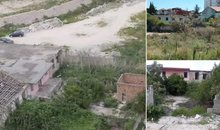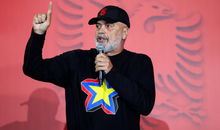
 Flash News
Flash News
The body of a 29-year-old man in Klos is found after 6 days
Arrested a few meters from SPAK, the Special Prosecution seeks 17 years in prison for the drug 'boss'
Giro D'Italia starts today, here are the road axes that will be blocked in Tirana from 13:00-18:00
Who is the new Pope?
Pope Leo XIV greets the faithful for the first time in St. Peter's Square
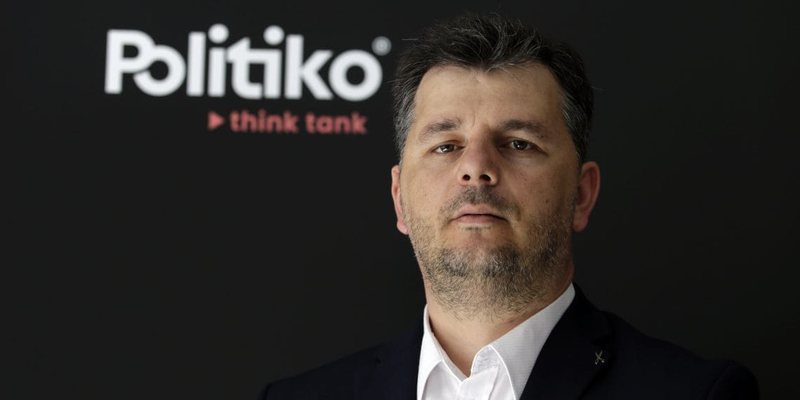
Marsel Lela
It seems that Sali Berisha has to please more than himself with the series of protests, with the language of communication to increase the number of participants in them, but also to 'control' those who do not take part in the protests, do not support them, but that doesn't stop them from demanding a lot from them and the organizers.
It must be said at the outset that, among all the protests, which I think are six, July 7 has been the largest and most effective. The rally reconfirmed Sali Berisha as Edi Rama's rival in the race for prime minister, finally dethroning L. Basha and returning the old Berisha-Rama rivalry.
The confirmation of Berisha as the leader of the opposition happened not only to show something to the democrats, socialist opponents, or even the internationals but to herald a new season of resistance, which would likely be either a return to the Doctor's old rhetoric and tactics or a reinvention of it. The latter is not an easy thing. Among the loyalists, who are mainly of the radical section, and a public that, between the lemonade and suspension of Big Brother and the revolt, would always choose the first, Berisha is caught somewhere between the state of "Malcolm X" and "Martin Luther King." Even his language, filled with 'revolution', is sometimes seen in contradictions. Occasionally he preaches peace and democracy; sometimes, he appeals that Rama is not overthrown by vote.
But, beneath this confusion lies a fact that should please Berisha and satisfy the radicals in the party. The truth is not related to the numbers themselves but to their quality. As never before in the history of the Albanian transition, Sali Berisha manages to bring people who have nothing to lose because they have nothing to gain to the squares. They come out because of their impatience, individual or group revolt, loyalty, or idolatry for Sali Berisha, and in the end, because the boot of power has suddenly caught their neck.
While they have all this, they do not have one thing: they are not government employees. Apart from Shkodra, where Bardh Spahia earns a few hundred salaries, Sali Berisha leads a people that embark on a 'revolution' at its own expense. He, Fatos Nano, and Rama e Basha had in their crowd central or local government employees, together or separately, when they were in the government or in the opposition. In the worst case, the Democratic Party led several brigades with employees, in at least 20 municipalities of the Republic, without mentioning other local and central institutions belonging to the opposition. Thus, this quality should also be calculated in the number of protesters. It is first-time and unnoticed, but it exists nonetheless. Hence, it is implied that Berisha and his should no longer be satisfied with the 'achievement.'
Latest news


Electoral flight to Vlora
2025-05-09 13:18:04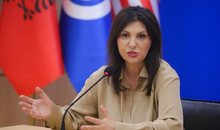

IdentiTek offices open on Saturdays
2025-05-09 13:03:13
Will artificial intelligence help us talk to animals?
2025-05-09 12:55:58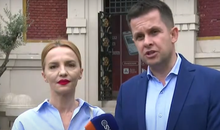

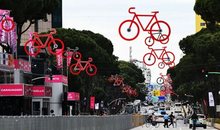

Rama's fourth act: between Brussels and the Mafia
2025-05-09 12:12:47
The body of a 29-year-old man in Klos is found after 6 days
2025-05-09 12:01:27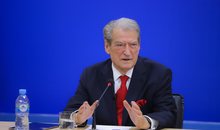
Berisha: After May 12, this opposition will become the majority in Albania
2025-05-09 11:52:37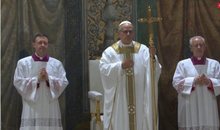
Leo XIV celebrates his first Mass as Pope
2025-05-09 11:42:34
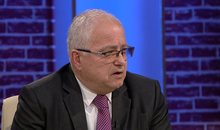
Spaho denounces: SP candidate in Pogradec gives 100 thousand lek for the vote
2025-05-09 11:27:26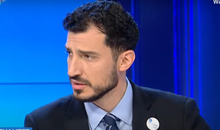
Mustafaj: Proud of the worthy campaign of the DP
2025-05-09 11:22:20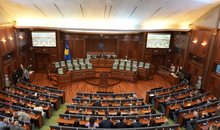
Constitution fails again, Kosovo still without a new Assembly
2025-05-09 11:06:55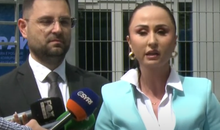

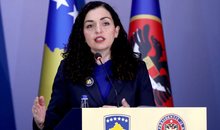
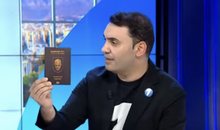


"Votes have no price", the US embassy in Tirana 'slaps' Rama
2025-05-09 10:06:49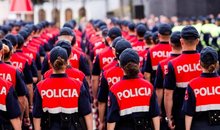

Two young men arrested for supplying criminal groups with firearms
2025-05-09 09:45:19




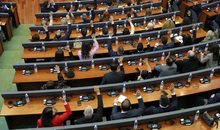


Foreign exchange/ How much foreign currencies are bought and sold today
2025-05-09 08:19:18
The gift that Berisha gave to Rama 'live'
2025-05-09 08:13:51
3 signs that show you are spiritually protected
2025-05-09 08:05:39

Bars can't hold back anymore, start increasing coffee prices, 4.7% more in April
2025-05-09 07:46:49

Horoscope, what do the stars have in store for you today?
2025-05-09 07:22:06
Unstable weather, afternoon brings rain
2025-05-09 07:01:29
Morning Post/ In 2 lines: What mattered yesterday in Albania
2025-05-09 06:45:46

How did LaCivita change the DP campaign? Berisha: He studied the opponent
2025-05-08 22:49:51

David defeats Goliath
2025-05-08 22:15:50

Journalist: There are SPAK infiltrators in party headquarters
2025-05-08 21:55:15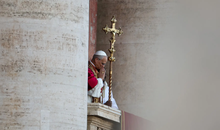
Who is the new Pope?
2025-05-08 21:48:13
Berisha finally reveals when he will retire from politics
2025-05-08 21:33:46

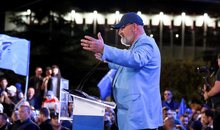
LaCivita in Lezha: Albanians will fire Edi Rama from his job
2025-05-08 21:11:20

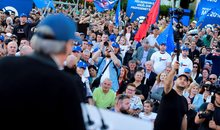
Berisha: LaCivita chose us because he believes in Reagan's program
2025-05-08 20:48:40
He rejected America to serve Pogradec, Genti Çela tells about life in "Elevate"
2025-05-08 20:26:28

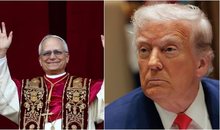

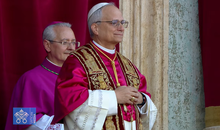
Pope Leo XIV greets the faithful for the first time in St. Peter's Square
2025-05-08 19:29:33

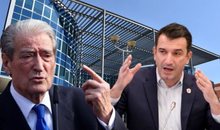


Photo session with LaCivitta in Tirana: For Great Albania
2025-05-08 18:40:18
Source: DASH decision a personal victory for Berisha
2025-05-08 18:30:10
Take off those crazy glasses and see where you've taken him?
2025-05-08 18:02:47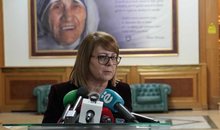
LDK files criminal charges against members of the incumbent Government
2025-05-08 18:02:00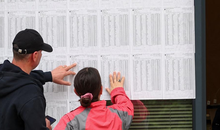

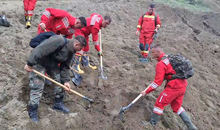
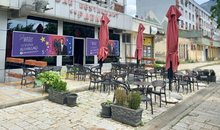



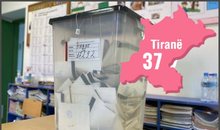
BIRN analysis: Tirana, the determining district for the future majority
2025-05-08 16:04:03
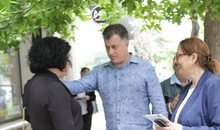



Chris LaCivita's contract with the DP, Berisha: 100% correct and clean
2025-05-08 15:11:11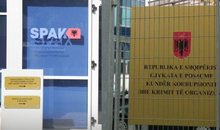
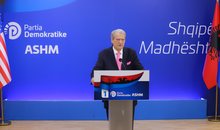
"These are the peak days", Berisha reveals when he will travel to the USA
2025-05-08 14:45:25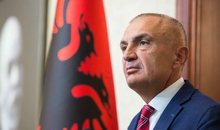

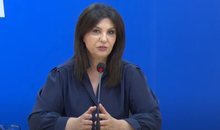
Endless boxes with filled-in ballots, DP demands separation of votes from Greece
2025-05-08 14:11:12


Photo/ Who are the 3 associates of Talo Çela arrested in Dubai?
2025-05-08 13:37:09
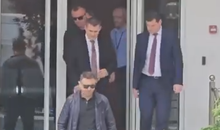
Hetimi për krimet zgjedhore, Altin Dumani zbarkon në Prokurorinë e Shkodrës
2025-05-08 13:06:21
DASH paves the way for Berisha, Alizoti: Great news on the eve of Great Albania!
2025-05-08 13:03:48
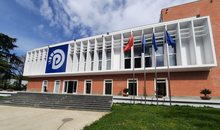
"Freedom works", DP welcomes the US position
2025-05-08 12:48:07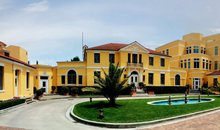
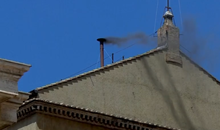
Black smoke rises from the Sistine Chapel, the Vatican still without a Pope
2025-05-08 12:26:18